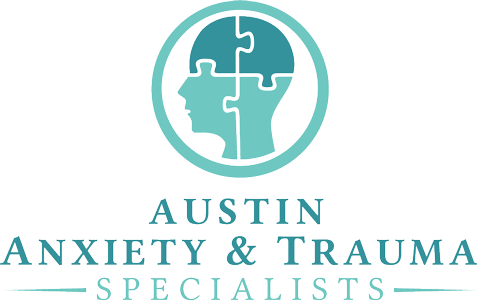How To Disarm Your Inner Critic And Heal Your Inner Child
A man in his thirties sits alone at his desk, surrounded by a mountain of work, feeling overwhelmed. Tears well up as he berates himself, “You’re stuck in this mess because of how lazy and incompetent you are.”
This harsh self-criticism is a familiar echo from his childhood, a voice not truly his own, but inherited from critical caregivers. It’s not just his adult self reacting to the stress of the moment; it’s his inner child, still harboring feelings of inadequacy and fear of failure.
This scenario is not unique. For many adults grappling with depression and low self-esteem, understanding and nurturing their inner child can be a transformative step towards healing and emotional well-being. Getting in touch with your inner child’s needs can provide profound insights into your mental health challenges like depression or low self-esteem and provide a pathway to a more fulfilling life.
What is an inner child?
The notion of the inner child is not just a metaphorical concept but a psychological reality deeply rooted in our formative experiences. It represents a part of our subconscious that holds childhood emotions, memories, and experiences, encompassing the joys, fears, sensitivities, and traumas of our early years. This inner child influences our reactions and behaviors, often reacting from the perspective and feelings of our younger selves, rather than our current adult understanding.
These childhood experiences significantly shape our adult perceptions, reactions, and interactions. Unresolved issues from these formative years often manifest in adulthood, impacting our self-esteem and emotional health. Adults grappling with unresolved inner child issues might face constant battles with feelings of inadequacy, self-doubt, or deep-seated sadness. These emotions are reflections of an inner child that has not been adequately acknowledged—or healed. Recognizing and addressing the needs of our inner child can be an important first step in the healing journey.
Read: Battle Depression with the Hero’s Journey
Inner child and self-talk
Our self-talk, the internal dialogue we have with ourselves, significantly impacts our emotional health and self-perception. Within this conversation, the voice of our inner child often emerges, seeking validation and comfort in moments of self-doubt or criticism. For instance, consider a mother who struggles maintaining a healthy weight that she feels comfortable with. Each time she looks in the mirror, her inner voice harshly whispers, “You’re so overweight. You’ll never be attractive.”
This negative self-talk isn’t just about her current self-image—it’s a deeply ingrained message from her past, possibly rooted in childhood experiences of being teased or criticized for her weight. Every critical thought directed at her reflection is simultaneously a message to her younger self, reaffirming those painful memories and feelings of inadequacy. Her inner child wants to feel loved, beautiful, and valued for who she is, not her weight.
This mother’s journey to a healthier self-image begins with transforming her inner dialogue. Instead of criticism, she can learn to offer reassurances to her inner child: “Your worth isn’t defined by your weight. You are deserving of respect and care, regardless of your size.” This change in self-talk is a vital step in healing her inner child’s wounds and helps foster a more compassionate and accepting relationship with herself.
Read: How to Combat Negative Self-Talk with Self-Compassion
Steps towards healing your inner child
Step 1: Recognize harmful thoughts
The first step towards healing is to identify and become aware of negative self-talk. Often it manifests as cognitive distortions—skewed perceptions of reality, such as catastrophizing, overgeneralization, and black-and-white thinking.
Step 2: Be kind to yourself
Assess how fair your thoughts are towards yourself. When you tell yourself, “I’m not good enough,” “Things will never be good for me,” or “You’re not worthy of love,” remember that you’re talking to yourself as a child—your innocent, child self who only wants love, is curious about the world, and has hope for the future. Would you tell this to yourself if you were a child?
It’s time to change how you talk to yourself. Practice mindfulness by acknowledging how you’re feeling in the moment and validate the thought without judgment. Here’s what that might sound like:
“I’m feeling lost at the moment and that’s okay.”
“It hurts to be cheated on. That doesn’t make me unworthy of love.”
“I don’t like how I look these days. I think I’m uncomfortable with my weight.”
Step 3: Practice empathy and compassion
Next, try to better understand where your negative thoughts are coming from (empathy) and practice accepting that your feelings are normal (self-compassion). This step takes time to cultivate and can unearth difficult emotions. Consider exploring your thoughts through journaling, with a loved one, or with the guidance of a therapist. For example, you might journal something like:
Why do I react with anger when I feel embarrassed?
Did something happen in my childhood to elicit this response?
I guess considering the bullying I experienced for so long, it’s natural that being embarrassed would trigger a negative response today.
Step 4: Be constructive
As you learn to accept your feelings, you empower yourself to change your inner dialogue and your behavior. Changing ingrained thought patterns takes time. Persist in challenging and reframing negative thoughts to cultivate a more positive and compassionate mindset towards yourself. With constructive tools learned in therapy like Cognitive Behavioral Therapy (CBT), you can learn to heal your childhood wounds and feel better.
Your child-self deserves it.
Read: “I’m not good at anything”: How to Change the Way You Think About Yourself
If negative self-talk significantly hinders your daily life, consider therapy as a proactive step towards healing. Professional guidance can offer the support and strategies needed to navigate these challenges, fostering a healthier relationship with yourself—and your inner child.
At Austin Anxiety and Trauma Specialists, we’re committed to supporting your journey towards mental wellness. Whether you’re struggling with depression, low self-esteem, or uncharted challenges, we’re here to assist. Set your first appointment, and we’ll match you with a therapist who can best help you embark on your path to healing. It can get better. We can help.






